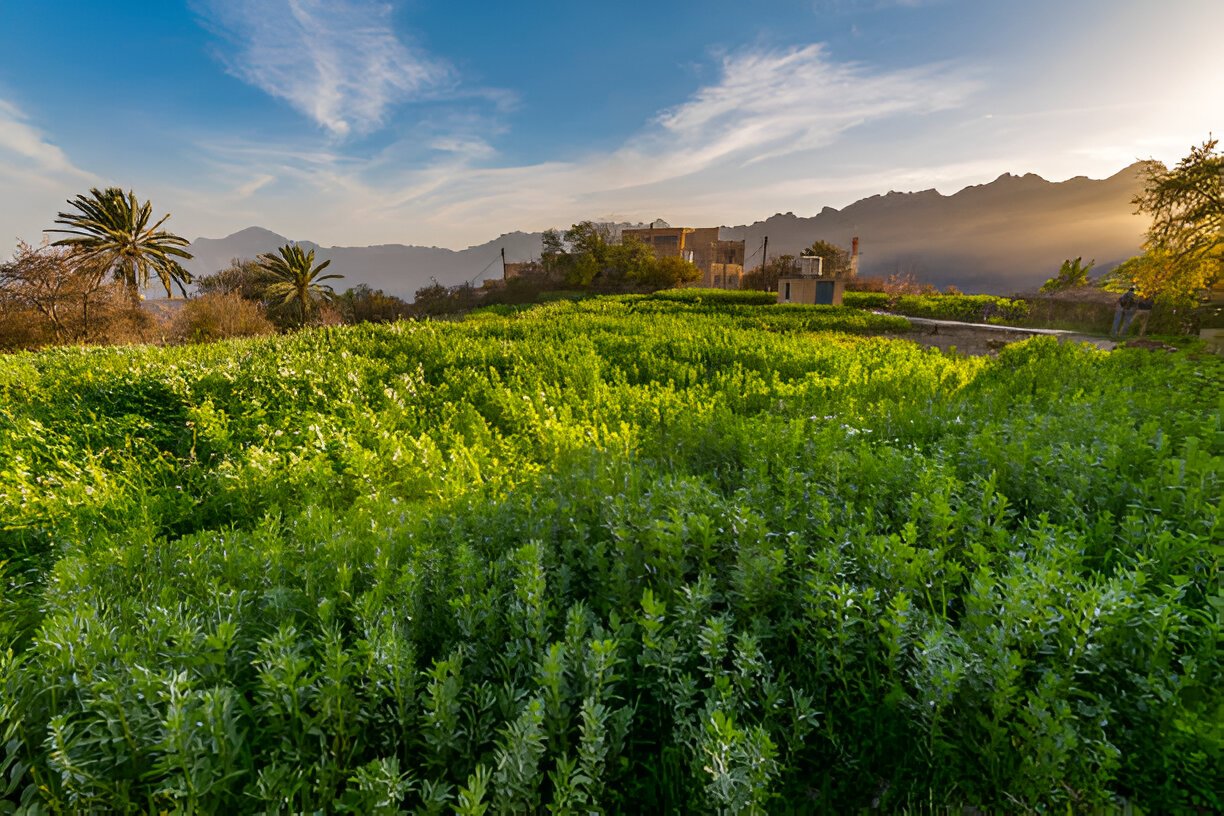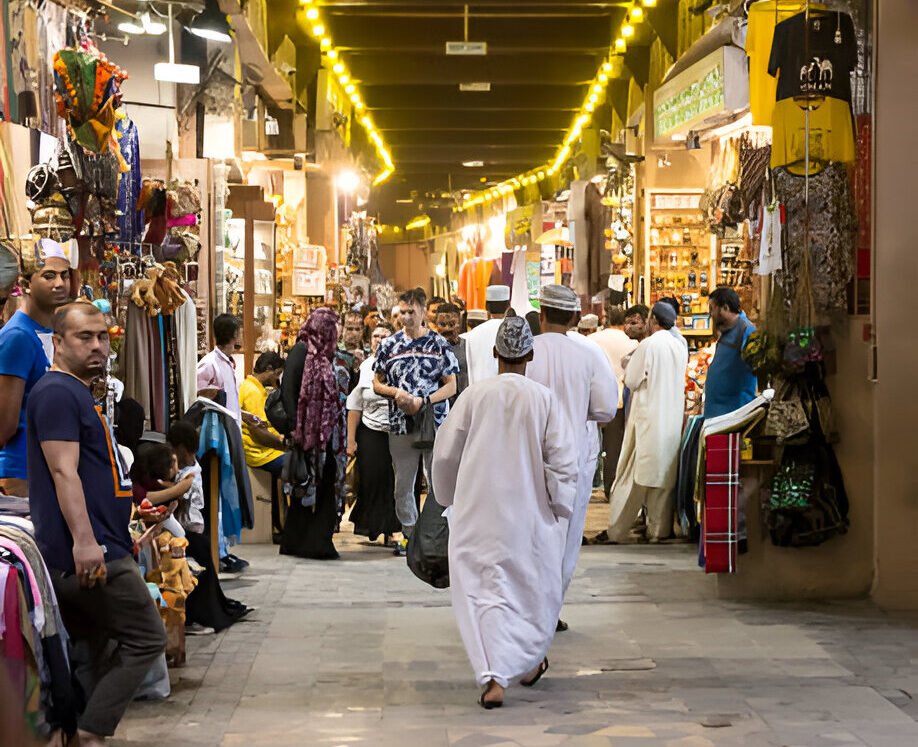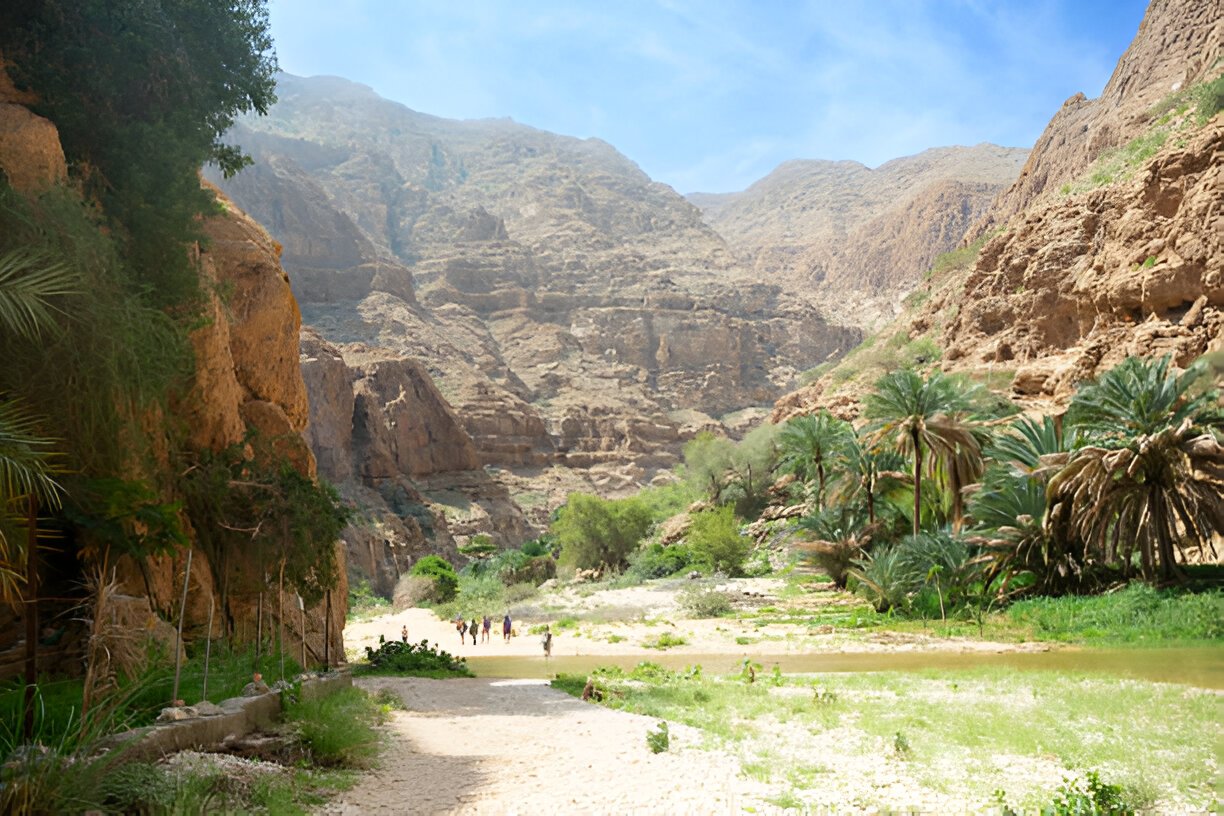
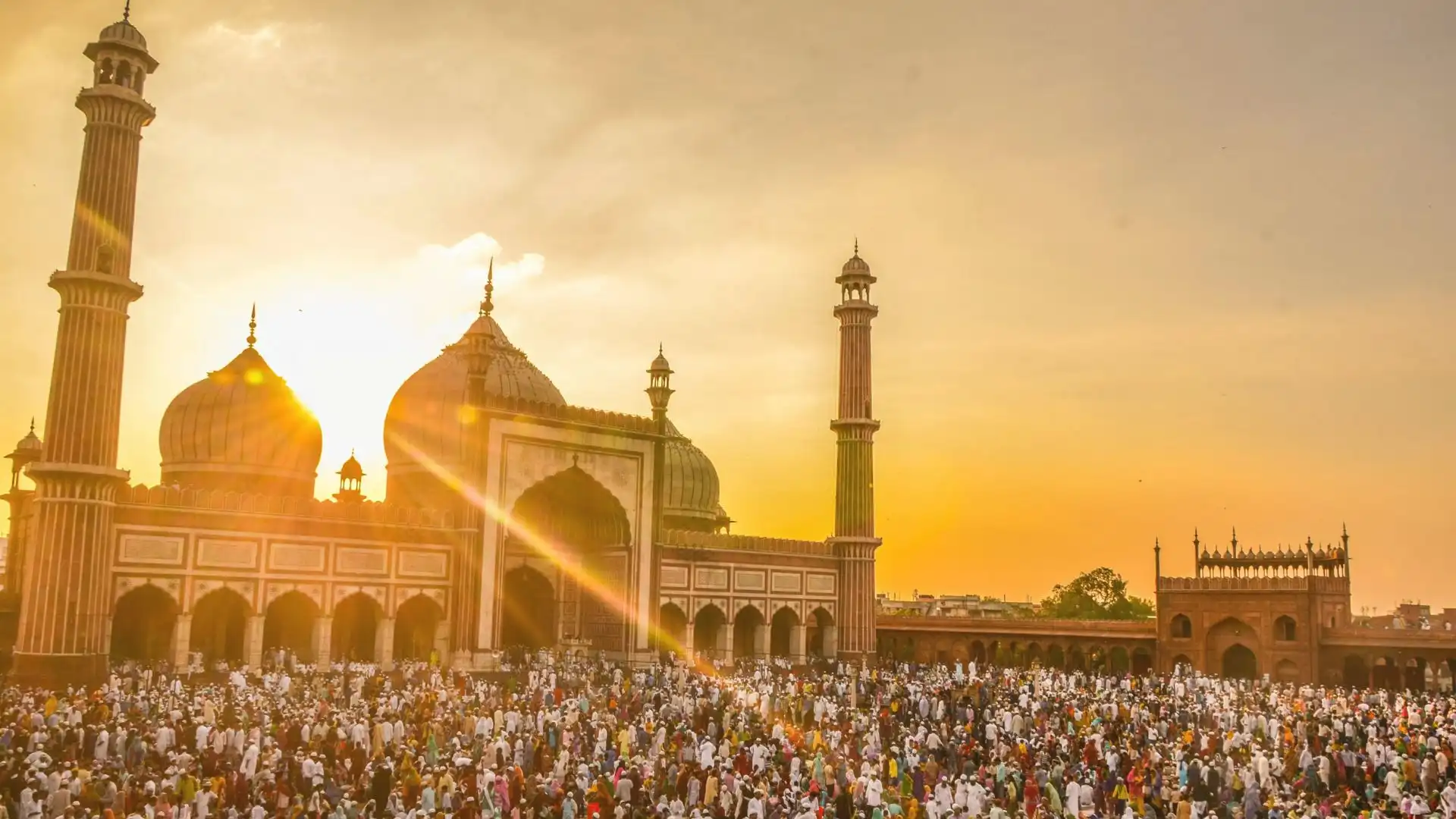
Eid al-Adha in Oman, also known as the “Festival of Sacrifice,” is one of the most significant religious celebrations for Omani Muslims. This holiday marks the culmination of Hajj, the sacred pilgrimage to Mecca, and commemorates the Prophet Ibrahim’s willingness to sacrifice his son, Ismail, in obedience to God. Taking place on the 10th of Dhu al-Hijjah in the Islamic calendar, Eid al-Adha in Oman is a time of reflection, devotion, and unity. Across Oman, families engage in special prayers, charity, and the symbolic act of Qurbani, or animal sacrifice, which is a central part of the celebration.
The story behind Eid al-Adha in Oman is deeply rooted in religious history, linking back to the Quranic account of Prophet Ibrahim. As the narrative goes, Ibrahim dreamt that God had commanded him to sacrifice his beloved son, Ismail. Ibrahim’s unwavering faith and obedience led him to prepare for the sacrifice, but just as he was about to carry it out, God provided a ram as a substitute. This act is celebrated annually as Eid al-Adha in Oman, symbolizing the themes of sacrifice, submission, and divine mercy. A Quranic verse encapsulates this essence, stating, “Their meat will not reach Allah, nor will their blood, but what reaches Him is piety from you” (Quran 22:37). The verse reminds the faithful that true devotion is found in obedience and charity, not just in outward rituals.
Central to Eid al-Adha in Oman is the practice of Qurbani, or ritual sacrifice. This tradition honors Prophet Ibrahim’s commitment and reminds Muslims of their duty to God. Omanis typically choose animals such as goats, sheep, or cows, depending on their availability and preference. The meat from the sacrifice is distributed among family, friends, and the less fortunate, emphasizing the holiday’s values of charity and community care.
The act of sacrificing an animal during Eid al-Adha in Oman is symbolic of the individual’s willingness to give up something of value for the sake of their faith. It encourages Muslims to prioritize spiritual commitments over material possessions, a principle reinforced in the Quranic verse that states, “Indeed, We have granted you, [O Muhammad], al-Kawthar. So pray to your Lord and sacrifice [to Him alone]” (Quran 108:1-2). The distribution of meat during Eid al-Adha in Oman highlights community spirit, as families come together to share their blessings with the needy, reinforcing the bonds of unity and compassion within the Omani society.
Eid al-Adha in Oman is closely tied to the annual Hajj pilgrimage, one of Islam’s Five Pillars. The rites of Hajj pay homage to significant events in the lives of Prophet Ibrahim, his wife Hajar, and their son Ismail. Pilgrims engage in several rituals, such as the Tawaf (circling the Kaaba), Sa’i (walking between Safa and Marwah), and the symbolic act of Rami (stoning of the devil). Each of these rituals has deep-rooted connections to the story of Ibrahim and are a reflection of faith, endurance, and submission to God.
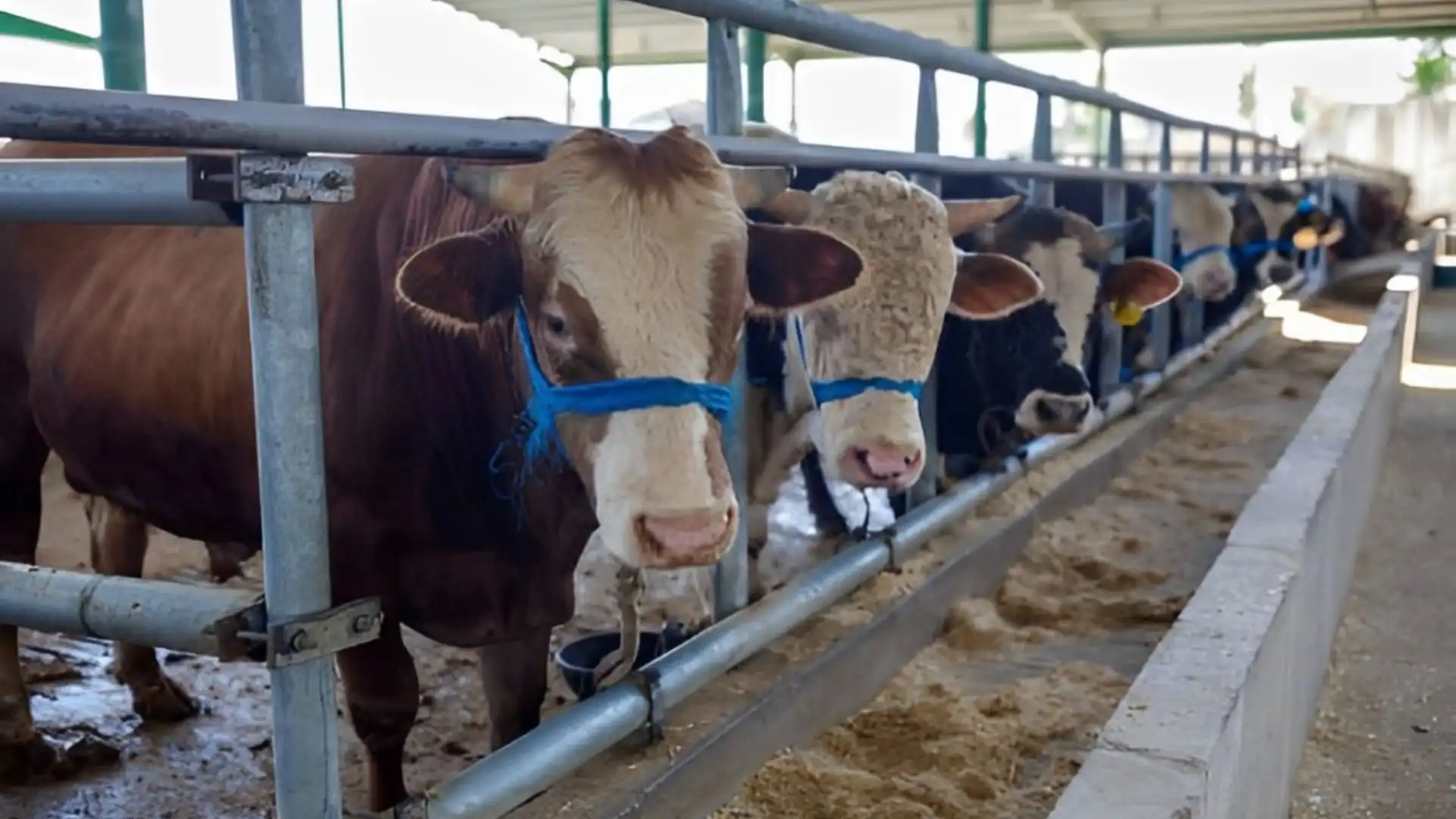
Eid al-Adha in Oman is a time of both spiritual reflection and social responsibility. The festival provides an opportunity for Omani Muslims to reconnect with their faith, evaluate their priorities, and engage in acts of kindness and charity. It is also a time when families and communities gather in prayer, share meals, and support each other, enhancing the social cohesion within Omani society.
Eid al-Adha in Oman underscores the value of charity. In distributing the meat of the Qurbani to those in need, Omanis demonstrate generosity, fulfilling the Prophet Muhammad’s guidance: “He who sleeps on a full stomach while his neighbor is hungry is not one of us” (Sahih Muslim). This powerful message underlines the compassion and empathy that characterize Eid al-Adha in Oman and reflects the values of the Islamic faith.
While the core rituals of Eid al-Adha in Oman have remained consistent over time, some aspects of the celebration have adapted to modern life. Omanis balance traditional practices with contemporary challenges, such as work schedules and the availability of halal meat for Qurbani. In cities, people often opt to perform the Qurbani through local butchers or charitable organizations, who distribute the meat on behalf of donors.
Celebrations of Eid al-Adha in Oman vary by region, with some areas focusing on large community gatherings, while others have more intimate family celebrations. Across Oman, however, the themes of sacrifice, gratitude, and community care remain at the heart of the holiday, reflecting the essence of Eid al-Adha within Omani culture and faith.
Eid al-Adha in Oman stands as a testament to the enduring values of faith, sacrifice, and charity in Islam. Rooted in the story of Prophet Ibrahim’s devotion, Eid al-Adha offers Omanis a moment to reflect on their relationship with God, share blessings with the less fortunate, and foster unity within their communities. As the world continues to evolve, the traditions of Eid al-Adha in Oman will likely continue to adapt while maintaining the timeless principles of compassion, generosity, and piety that define this sacred celebration.
In the words of Prophet Muhammad, “The best of deeds is the one that is done regularly, even if it is small” (Sahih Bukhari). This quote highlights the spirit of Eid al-Adha in Oman, reminding believers that genuine devotion lies in the consistency of their faith and acts of kindness.
Never miss any important news. Subscribe to our newsletter.

